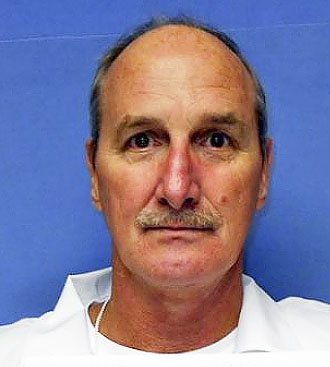FAYETTEVILLE -- The Arkansas Supreme Court on Thursday sent the case of a Washington County man who's been serving a life sentence for a 1990 rape conviction back for a hearing and potential re-trial because the testimony of an FBI hair comparison expert has been discredited.
Lonnie Dolphus Strawhacker, 60, was accused in 1989 of raping and beating a woman in Fayetteville until her face was so swollen she couldn't see.
Writ of coram nobis
An order by an appeals court to a lower court to consider facts not in the trial record that might have changed the outcome of the case if known at the time of trial. Coram nobis is Latin for the “error before us.”
Source: uslegal.com
Eugene Issac Pitts, 69, convicted of murder, also had his case sent back to Pulaski County for a hearing in the same move from the court.
The attack happened on a dark night and the woman was unable to visually identify her attacker because of the darkness and the injuries to her face. She identified Strawhacker by his voice during a police line-up.
Michael Malone, who was a microscopic hair analyst with the FBI, testified a hair from the crime scene matched Strawhacker.
The prosecuting attorney emphasized Malone's testimony in his final remarks to jurors during Strawhacker's trial.
But testimony from Malone and others has since been discredited, and the discipline of comparing microscopic characteristics of hair without analyzing DNA has been relegated to "junk science," Jeff Rosenzweig, an attorney representing Strawhacker, argued in his brief to the high court.
A National Academy of Sciences report in 2009 found fault in the analysis methods used in convictions such as Strawhacker's.
After DNA analysis was used to reverse convictions in a several high-profile cases, the FBI and the Department of Justice began reviewing cases where such testimony was offered. Last year, federal officials said 26 of their 28 experts, including Malone, gave "erroneous" testimony.
A divided Supreme Court on Thursday ruled Strawhacker is entitled to a hearing in Washington County Circuit Court to determine if the reputed expert's testimony was material and if Strawhacker is entitled to legal relief to prevent a miscarriage of justice.
Evidence is material if there's a reasonable probability that, had the evidence been disclosed to the defense, the outcome would have been different, according to the opinion.
Justices conceded the legal move, known as a petition for writ of error corum nobis, is an extraordinary remedy but said this case is unique.
"We steadfastly adhere to the principle of finality," justices wrote. "But we will not place finality over justice and due process when the government admits that it's agent gave invalid expert scientific advice at a criminal jury trial."
Justice Paul Danielson agreed Strawhacker should be allowed a hearing to re-argue his case but opined the majority went too far because the circumstances don't fit into one of four categories which include insanity at the time of trial, a coerced guilty plea, material evidence withheld by a prosecutor or a third-party confession between the time of conviction and appeal.
Justices Courtney Goodson and Paul Danielson each wrote concurring opinions in which they agreed to allow the trial court to review the cases, but objected to their colleagues' expansion of the range of issues that can be addressed by a writ of error coram nobis. In his opinion, Danielson wrote that the decisions "are advisory, premature, and go too far."
Goodson also questioned the timing of the inmate's request, and, while she offered no opinion on the matter, she noted that questions about the validity of Malone's analysis date back to Strawhacker's original trial.
Matt Durrett, Washington County prosecutor, said he also doesn't understand the reasoning behind the ruling.
"There's four categories in which this type of relief is available and this doesn't fit in any of those," Durrett said. "Even they say it doesn't fit in any of the categories."
After the high court's ruling, a lawyer for one of the inmates said the decision would lead to another series of court battles. Attorney General Leslie Rutledge's office expressed confidence that enough evidence exists to uphold the men's convictions.
"The Attorney General respectfully disagrees with the Court's decision to allow the felons' challenges to their decades-old convictions to move forward," spokesman Judd Deere said in an emailed statement. "There was substantial evidence that these two prisoners committed the heinous crimes of which they were convicted."
A decade before the rape case, Pitts was charged in 1979 with the murder of Bernard Jones, who was found shot dead in a car near his home the morning after Jones' wife arrived at home to find her husband bound and gagged by a masked man she identified as Pitts. Jones' wife had a restraining order against Pitts. When questioned by police, Pitts had trouble saying where he was at the time of the killing.
A hair found on Jones' body was identified as Pitts' in Malone's analysis. A later DNA test on the hair sample was inconclusive.
Strawhacker is housed at the Arkansas Department of Correction unit in Grady. Pitts is at the Tucker unit.
NW News on 10/21/2016

